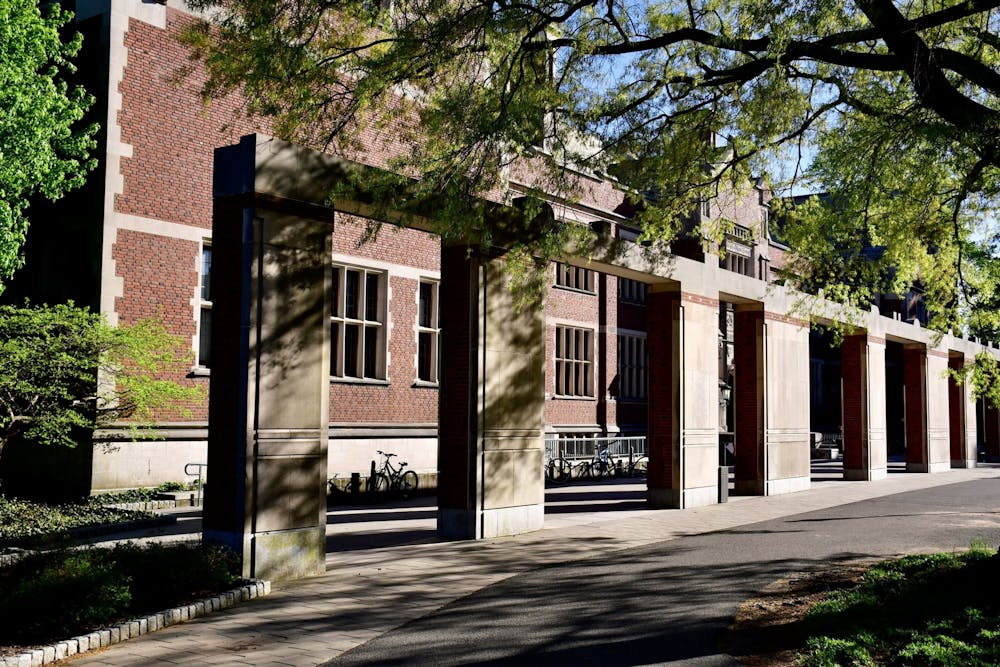When the COVID-19 pandemic emerged, higher education was turned upside down as students had to scatter around the country and world to return to their homes. The last couple of months have exposed many of the systemic inequities of higher education in the United States. While the disruption of the pandemic has brought about pain and loss, it could also provide the University the opportunity to be a leader in the reform of higher education in this country and transform campus life from an emphasis on opulence and status to one of mindfulness and service.
In times of crisis, education systems undergo radical and immediate changes. This was seen with the emergence of the bubonic plague in Europe during the 14th century. Universities thrived after the Black Death and were drastically transformed. The plague ultimately led to a shift from a worldview centered around the authority of the Church to one that valued science and humanism. The COVID-19 pandemic will be equally transformative, for good or for bad. Change is inevitable, and it is up to us to make sure that decisions made now and in the coming months will shape the future of higher education in this country for the better.
Princeton has adapted to and survived a long history of economic and political strife. As such, the University revels in its capacity to continue to advance, preserve, and disseminate knowledge. The pandemic must prompt the University to rethink how it uses its resources to accomplish that goal and confront prevailing challenges in higher education, such as growing tuition costs, vulnerability to corporatism, unhealthy competition, and perceptions of elitism.
Despite lockdown restrictions, student and faculty groups have been running at full tilt, demanding an anti-racist curriculum, the re-naming of the Wilson School, increased hiring from underrepresented communities, the University’s divestment from fossil fuels and private prisons, the modification of Title IX policy, and improved financial aid for the coming school year. Even though the University has tried to respond to demands for social, racial, and environmental justice through financial aid, diversity initiatives, and sustainable architecture, its general approach to these issues has too often been to delay or ignore.
Princeton has already adopted a leading role in fighting the coronavirus in its labs. What if we also took a leading role in fighting the other problems? We know that we have reached a financial breaking point when the tuition of a four-year degree has increased almost eight times faster than wages in a country with the highest unemployment rate since the Great Depression. Conversations on how the University is structured will surely continue as students are charged nearly $50,000 in tuition for an education that will come mainly through a screen because, even with a discount, education should not cost families so much. Already among students at Princeton, the bottom 20 percent of income earners make up 2.2 percent of the student population, and the top 20 percent make up 72 percent. Yet in 2015, private equity fund managers received more money from Princeton’s endowment than students did. How can the University reduce cost and create a more resilient institution that expands accessibility and embodies the values it preaches?
This crisis should also bring about a transformation of campus culture. Remote learning has revealed what we should value at Princeton. While it has highlighted the importance of studying in the company of peers and professors, the culture of opulence is not missed. The moment students step onto campus, they are usually greeted with endless amounts of free food, free merchandise, and other luxuries that foster a culture of privilege and waste that undermines the University’s core mission of generating knowledge and making society better. Many of those lavish trappings of a top university distance students from the problems in society that such universities call on them to help solve.
Before COVID-19, it was easy to feel very comfortable in everyday life and find excuses to delay change to a status quo that was too far normalized. But now there are no excuses. There is no better time to reconsider past practices and rethink the future of higher education than today.
We should resist the impulse of going back to business as usual and embrace a growing movement to build a better society. Higher education will be central to this goal. Princeton has the opportunity to be a leader and address systemic failures of higher education while building a more resilient and just education system. A focus on people and service, not profit and status, must be at the heart of this renewed education philosophy.

It is time to stop and think — what kind of university do we want to inhabit once the storm passes?
Anna Hiltner is a rising sophomore. She may be reached at ahiltner@princeton.edu.









